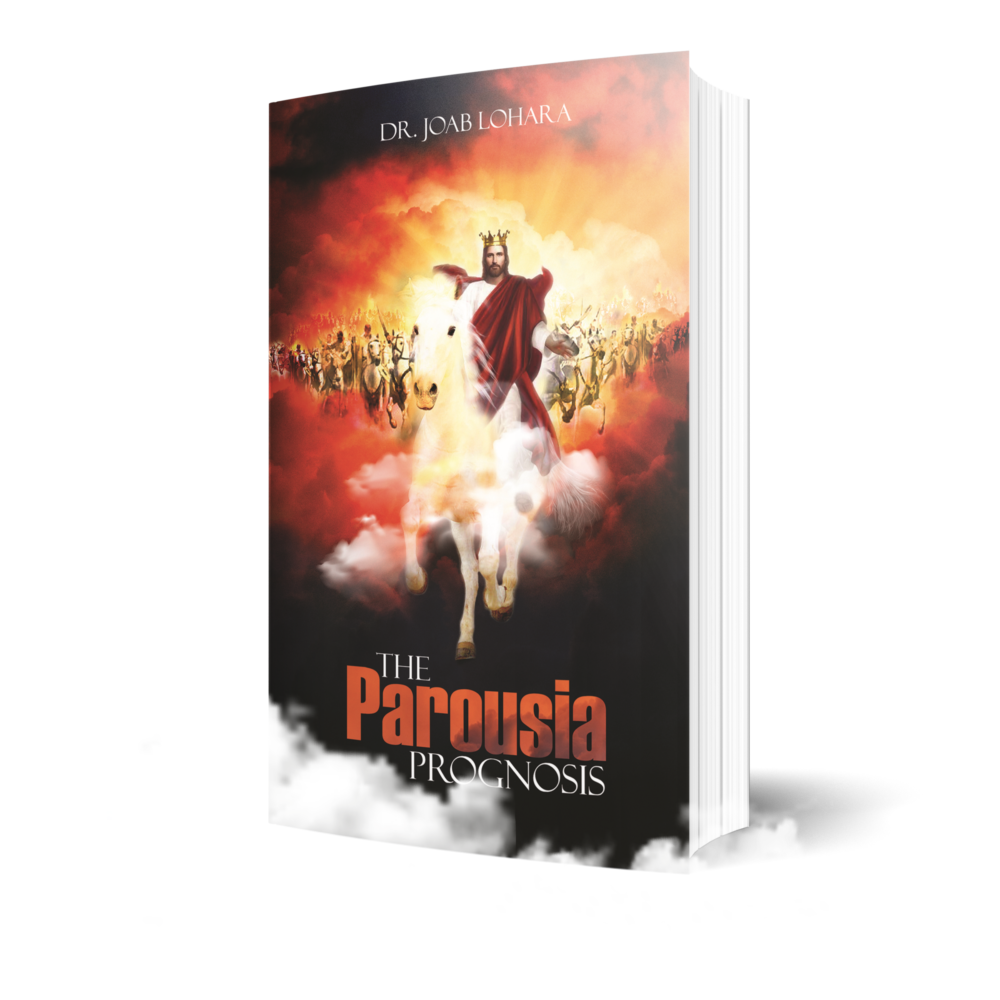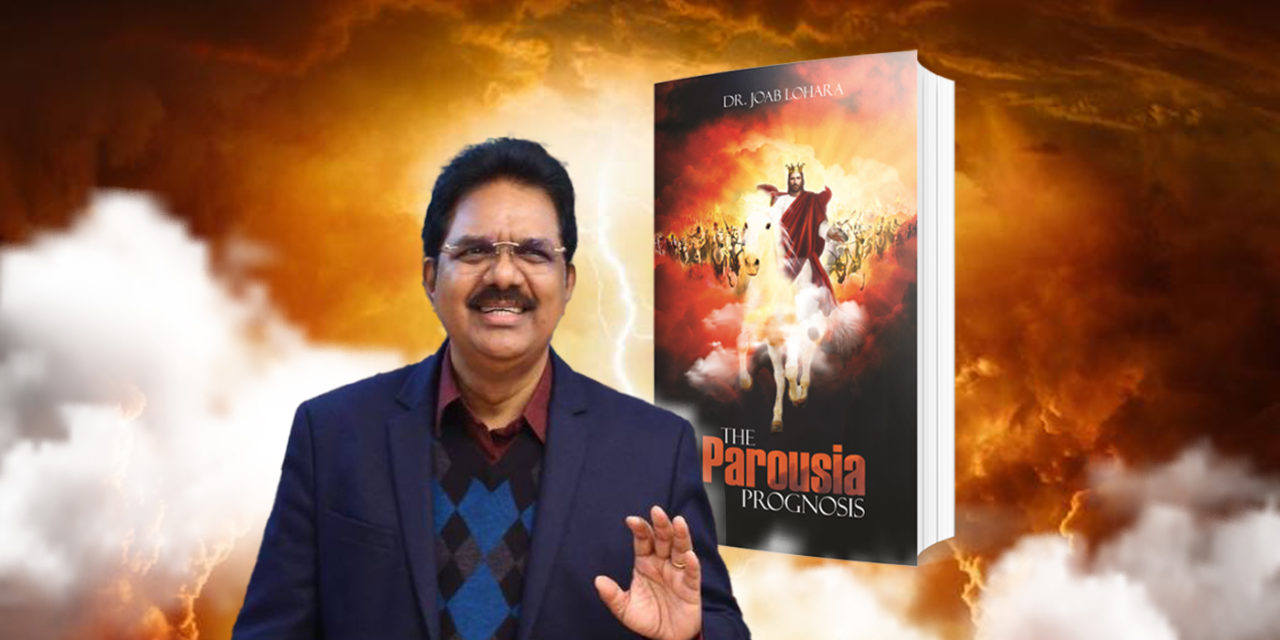A Light+Life Podcast
With guest Bishop Joab Lohara
Hosted by Brett Heintzman

Jeff Finley
Light + Life Executive Editor
Jeff Finley is this magazine’s executive editor. He joined the Light+Life team in 2011 after a dozen years of reporting and editing for Sun-Times Media. He is a member of John Wesley Free Methodist Church where his wife, Jen, serves as the lead pastor.
by Jeff Finley
Many Christians’ expectations about the end times come from popular American books and movies such as the “The Late, Great Planet Earth” and the “Left Behind” series. Enter “The Parousia Prognosis,” a groundbreaking new book from Asia that is written by a global Free Methodist Church leader who has carefully studied Scripture and church history.
Bishop Joab Lohara, the president of the Free Methodist World Conference and the founding chairman of Immanuel Educational Academy in India, has written 20 other tomes, but his latest book may become his most influential yet with availability on multiple continents and rave reviews. New South and Wabash Conference Superintendent John Lane wrote that with so many competing perspectives from theologians over church history, “it is difficult to differ with such great minds and produce something new. But as a trained journalist with a peculiar bent of genius and an ardent student of comparative religion, [Bishop] Joab Lohara performs brilliantly when turning against the tide.”
In an exclusive interview with “The Light + Life Podcast,” Lohara shared why he wrote the book and explained its title.
“Many people say, ‘Why this new word Parousia instead of Second Coming or the end-time appearance of the Lord?’ None of these words are there in the Scriptures. Second Coming is not there,” Lohara said. “What is not there has become popular. What is there has been concealed to the common public. The word Parousia is a beautiful Greek word, which simply means ‘personal presence,’ ‘a physical presence of someone,’ ‘arrival of a person’ or ‘an official visit of a dignitary.’”
The more common Second Coming “does not denote the same understanding. Parousia is when the Lord would personally return in clouds of glory in the great power and glory,” Lohara said. “The Second Coming is not just one event taking place at a particular time. Second Coming incorporates a lot of things with signs and wonders, wars and rumors of wars, preaching of the gospel to all nations, plagues and pestilences (like we have the pandemic now), astronomical perturbations, appearance of the anti-Christ. All of these involve the Second Coming, but the Parousia is when the Lord is finally here.”
Lohara has multiple academic degrees including two doctorates, but he isn’t aiming for an exclusive audience of scholars, theologians or pastors.
“I would like this to go to the common readership — everyone who has a hope of meeting Christ,” he said. “This is primarily for everyone.”
The idea for the book was sparked five years ago when Lohara read “The Quest of the Historical Jesus” by Albert Schweitzer, who doubted the existence of Jesus and the coming Parousia.
“He was a medical missionary to Africa, but the impact of Enlightenment changed his worldview. He started writing against Christ and His kingdom,” said Lohara, who also met an Indian scholar “who raised similar questions about the deity of Christ and His coming in glory. He said, ‘If Christ was God, why didn’t His prophecies come to pass in the time frame He has set for their fulfillment?’”
The Indian scholar referred to Jesus’ statement: “Truly I tell you, this generation will certainly not pass away until all these things have happened” (Mark 13:30).
Lohara said he “tried to find an answer to his questions among Indian writings in our own context, but I was disappointed. I did not find any. Therefore, I prayed to the Lord to help me create this humble work, and here it is in a book form.”
Back to the First Century
Why would Lohara, a well-respected leader and educator with friends in many denominations, enter a debate about biblical prophecy that has divided Christians for centuries?
“I have not presented a new idea, but I have made a unique presentation of the idea. I am inviting the scholars, the theologians, the church members, the leaders to come together and look into what the first century church believed,” said Lohara, who added that he is not discussing the “perverted ideas” or “the many other confused dogmas” that some people believe or promote in modern times. “I’m saying, ‘Why don’t you go back to the source where we got our teachings from?’ … I’m inviting them to study together and understand what the apostles taught, what the Lord taught, what the apostolic fathers taught.”
Unlike some discussions of Christ’s return that add to people’s confusion, Lohara said, “I’m trying to clear the confusion by inviting them to come and study with me what the early church believed — driving them back to the hope of the early church.”
Lohara said some of the popular evangelical understanding of the end times “started in the middle of the 19th century” and “is kind of nascent. It was not in the church history at all.” His book looks at what Scripture says and examines differing views throughout church history. One chapter explores how Saint Augustine’s views changed during different periods of his life.
Instead of debating all modern views, Lohara said, his book is “is trying to drive the readership back to the first century hope of the return of Jesus Christ.”
While the book doesn’t respond to every competing theory on Christ’s return, Lohara noted, “There are groups of people who say Christ has already come back. They believe that Jesus returned in 70 A.D. when Jerusalem was attacked by the Roman general Titus, the resurrection of the dead has happened, and all that is prophesied in the book of Revelation has been fulfilled in 70 A.D. so there is no hope of another Second Coming.” Meanwhile, other people — such as the Indian scholar whom Lohara met — claim Jesus incorrectly predicted He would come back within the same generation of the audience hearing His words.
“I have devoted three of the chapters in the book dealing with this issue of why Christ’s return has not happened,” said Lohara, who closely examined Christ’s words in the Gospels rather than following other authors’ arguments that are based on verses in Daniel and Revelation. “I think this is what makes the book very different. This is primarily based on the prophetic discourse of Christ in the Gospels. Christ is our Lord. Christ is God. When He spoke something, it should not go against or be contrary to what John sees in the Revelation, or it should not go against what is foretold by the book of Daniel.”
Lohara also addresses the debate about whether there are multiple anti-Christs or only one anti-Christ. He said his book provides “a very different perspective than what you hear from the pulpits of the church meetings. What you do not hear in the church meetings, you will find it in this book.”
Pandemic Parousia?
While much of the book focuses on the early church, “The Parousia Prognosis” addresses the timely topic of the COVID-19 pandemic.
“The sermons that I have preached during the pandemic have been a part of this book,” said Lohara, who shared about Parousia through Zoom services and classes when in-person gatherings ceased.
“Many people thought that this pandemic is God’s judgment,” Lohara said.
Some people base that understanding on Revelation 6:8, which states, “I looked, and there before me was a pale horse! Its rider was named Death, and Hades was following close behind him. They were given power over a fourth of the earth to kill by sword, famine and plague, and by the wild beasts of the earth.”
In response to some people who predict Christ will return at the end of the current pandemic, Lohara has explained, “Yes, pandemics come, and pandemics are things that may indicate His coming, but this is not something that was revealed in Revelation Chapter 6.”
While writing the book’s final chapter, Lohara tested positive for COVID-19, and he was forced to take a two-month break from writing.
“I suffered for a month and took another month to really regain my strength,” Lohara said. “I’m quite OK now — in full strength.”
In “A Word of Apology & Thanksgiving” at the beginning of the book, the bishop wrote that “the Lord’s miraculous touch and restoration of health makes me not just grateful but even more responsible towards life and the mission before me.”
Lohara said during that podcast that he doesn’t know why the pandemic is happening with so many lives lost, but the pandemic should cause us to pay attention: “If this is not the last pandemic before Christ’s return, we should be prepared. If this is one of the pandemics, we should be prepared, but this is a wakeup call — a warning for the church and for the world.”
Click here to buy “The Parousia Prognosis” from the Light + Life Bookstore. +


Jeff Finley
Light + Life Executive Editor
Jeff Finley is this magazine’s executive editor. He joined the Light+Life team in 2011 after a dozen years of reporting and editing for Sun-Times Media. He is a member of John Wesley Free Methodist Church where his wife, Jen, serves as the lead pastor.









